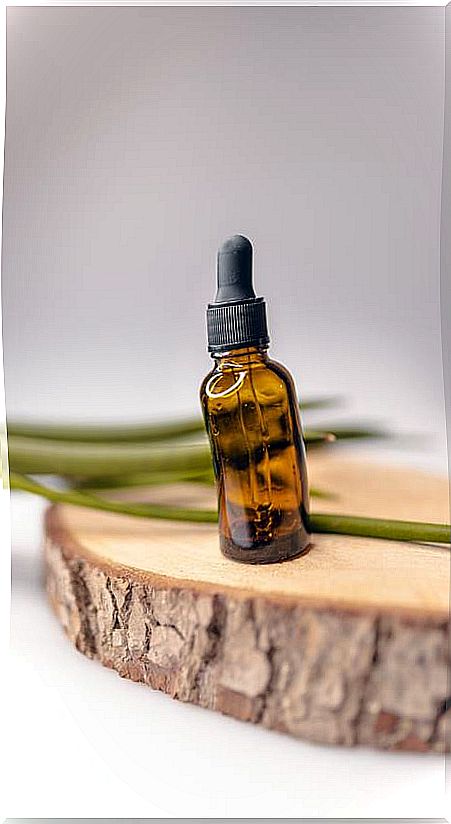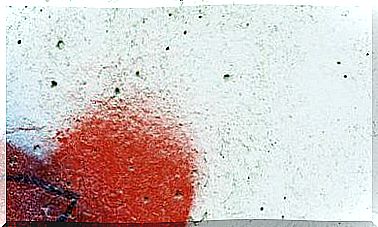Why Are Essential Oils Effective?
There is a growing interest in essential oils, but do we know why they are effective? The explanation for its success lies in its chemical composition, which explains the beneficial effects on the body.

They appear to be a homogeneous substance, they are often transparent, but essential oils used for therapeutic purposes are chemically very complex substances where up to 300 different molecules are combined.
Gerhard Buchbauer, professor of pharmaceutical chemistry at the University of Vienna, has investigated the essential oils used in aromatherapy and highlights the volatile organic compounds that we perceive through smell as the protagonists of their composition.
Dr. Wolfgang Steflitsch, Vice President of the Austrian Aromatherapy Association, explains that there is high-quality scientific evidence on the effectiveness of essential oils in treating viral, bacterial, fungal and parasitic infections, and in alleviating sleeping difficulties and pain. The oils can also improve moods, such as anxiety, depression, and reduce stress.
Why are they effective? The answer seems to be in the way its volatile compounds reach the body through smell and the skin.
How they act through smell and skin
Essential oils are extracted from the roots, flowers, leaves or seeds of plants by steam or by applying physical pressure. The adjective “essential” refers to the fact that the oil contains the “essence” of the plant (that is, the natural chemicals that provide its distinctive smell or taste.
- How they are applied. Aromatherapists recommend that the oils be inhaled directly from a jar, cloth, or palm of the hand, or massaged into the skin after diluting in a carrier oil, such as olive oil or sweet almond oil. They can also be diluted in bath water or gels, creams and shampoos.
- How they are absorbed through the nose and skin. When inhaled, the absorption of volatile compounds through the nose is as fast as an intravenous injection, Buchbauer says. Absorption through the skin is slower because some of its chemicals have to pass through fatty tissue and can even be stored there.
- With precaution. Due to its potency, it is important to use only a few drops diluted in another oil, because if applied directly to the skin they can irritate it or increase sensitivity to the sun’s rays.
- Why smell plays an essential role. The sense of smell plays an important role in the way essential oils act on the body. When inhaled, they stimulate smell receptors in the nose, which send chemical messages through nerves to the limbic system in the brain, affecting moods and emotions, and can have some physiological effects.
Scientific evidence on essential oils
Melissa is able to reduce agitation in patients with dementia, according to a study published in the Journal of Clinical Psychiatry. Other studies confirm that citrus essential oils act as anti-inflammatory agents.
Another proven oil is tea tree oil, which can be an effective acne treatment. In a clinical trial, researchers compared the gel containing tea tree oil to a benzoyl peroxide product and found that it worked slightly better, but that the tea tree oil had fewer side effects.
Some preliminary work has suggested that peppermint oil may help irritable bowel syndrome, although traditional indications are as a decongestant and to treat headaches and muscle aches.
Lavender oil is used for anxiety, restlessness, insomnia, depression, headache, upset stomach, and hair loss. Some studies indicate that it can be useful, combined with thyme, rosemary and cedar, to combat alopecia areata.
Possible side effects of essential oils
Inhaling essential oil vapors is safe for most people, if used correctly (not overdosing and diluting them into base oils when applied to the skin). However, the continued use of some can have undesirable effects, which proves their potency.
For example, lavender and tea tree oils contain small amounts of phytoestrogens that mimic the action of female hormones. Its continued use can cause breast tissue enlargement in preteens, according to a study published in the New England Journal of Medicine.
Scientific references:
- Elaine Perry et al. Aromatherapy as a safe and effective treatment for the management of agitation in severe dementia: the results of a double-blind, placebo-controlled trial with Melissa. Journal of Clinical Psychiatry.
- Barnetson et al. A comparative study of tea-tree oil versus benzoylperoxide in the treatment of acne. The Medical Journal of Australia.
- Clifford A. Bloch et al. Prepubertal Gynecomastia Linked to Lavender and Tea Tree Oils. New England Journal of Medicine
- Wolfgang Steflitsch and Michaela Steflitsch. Clinical aromatherapy. Journal of Men’s Health.









